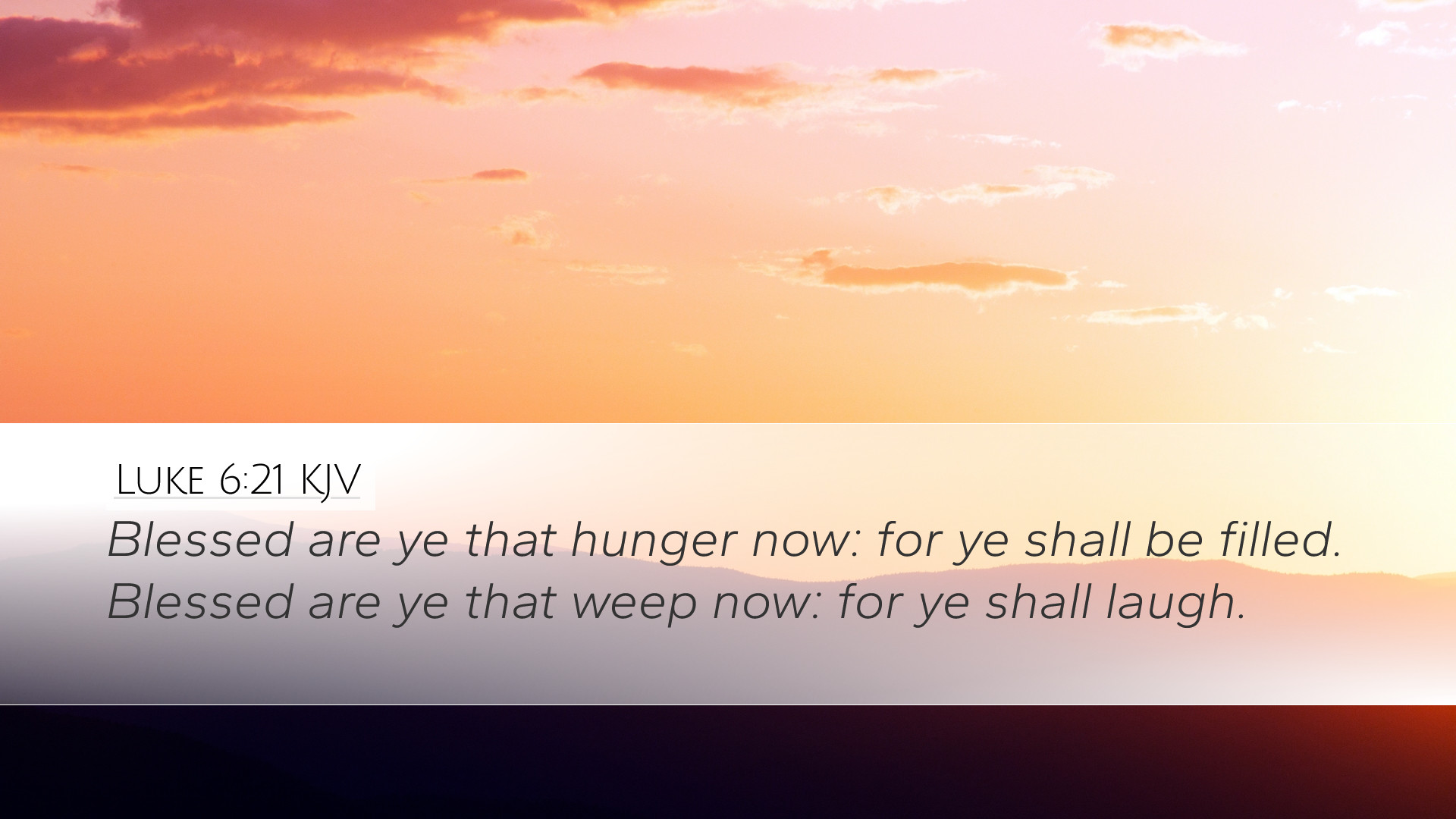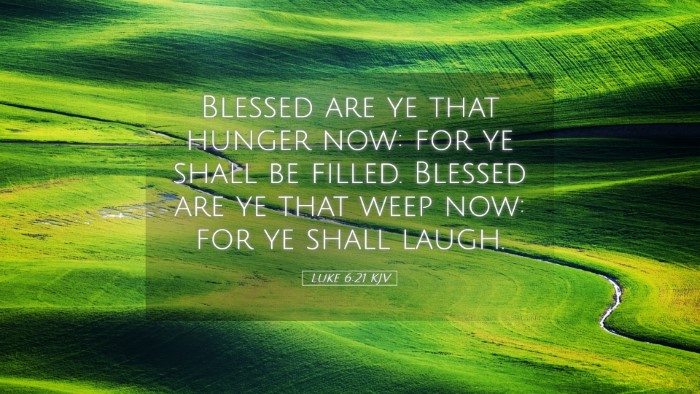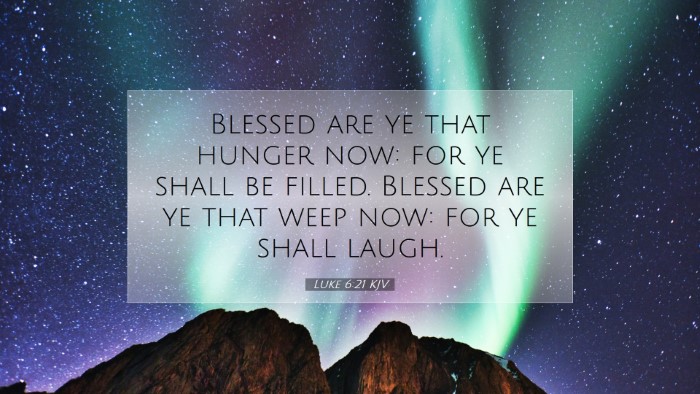Commentary on Luke 6:21
Text of the Verse: "Blessed are ye that hunger now: for ye shall be filled. Blessed are ye that weep now: for ye shall laugh."
Introduction
This passage forms part of the Sermon on the Plain, where Jesus addresses the needs and conditions of the marginalized and the oppressed. The beatitudes serve as profound reflections on divine favor, revealing the paradoxical nature of the Kingdom of God.
Contextual Analysis
The Sermon on the Plain emphasizes the radical nature of Jesus’ teachings. Unlike the traditional paradigms of blessing, which often align with wealth and prosperity, Jesus pronounces blessings upon those who endure hardship and affliction.
Matthew Henry's Insights
Matthew Henry emphasizes that the blessings promised by Christ are not merely future hopes, but also contain present encouragement for those who suffer. He notes that hunger and weeping are both states that reflect a longing for divine intervention.
- Hunger: A metaphor for spiritual and physical needs. Henry interprets this as a desire for righteousness and fulfillment that ultimately leads to spiritual satisfaction.
- Weeping: This highlights the empathetic nature of human suffering. Henry suggests that Jesus acknowledges these experiences and promises joy in the midst of sorrow.
Albert Barnes' Commentary
Albert Barnes expands on the blessings of those who are in a state of need. He aligns the hunger mentioned in this verse with a craving for righteousness, linking it to a spiritual hunger that ultimately finds satisfaction in Christ:
- Spiritual Hunger: Barnes suggests that true fulfillment comes from seeking after God, emphasizing that spiritual desires are often more profound than physical ones.
- Promise of Fulfillment: The future promise of being filled reflects not only a restoration of physical needs but also a deep spiritual restoration promised through Christ’s grace.
Adam Clarke's Contributions
Adam Clarke provides insights into the emotional and spiritual implications of weeping. He elaborates on the nature of suffering that the blessed endure, highlighting a tension between earthly pain and heavenly reward:
- Weeping: Symbol of Suffering: Clarke notes that Jesus recognizes legitimate sorrow. This sorrow isn't merely for one's own plight but can encompass mourning for the sins of the world.
- Promise of Laughter: Clarke interprets laughter not only as relief but as an expression of joy that transcends the current struggles, rooted in the hope of eternal life and communion with God.
Theological Implications
This verse challenges the conventional understanding of blessing, prompting theological reflection on the nature of grace and divine favor:
- Countercultural Blessings: The beatitudes redefine what it means to be blessed, showing that God’s favor often rests with those who are marginalized or suffering.
- Interrelationship of Suffering and Joy: The implications for pastoral care are profound, encouraging a ministry that acknowledges pain while pointing towards future comfort and joy in Christ.
Practical Applications
For pastors and theologians, this verse calls for a ministry of compassion:
- Empathy in Ministry: Acknowledging and validating the struggles of congregants, channeling support through community and prayer.
- Preaching Hope: Proclaiming the hope of fulfillment and joy that Christ offers, motivating believers to trust in his promises despite current circumstances.
Conclusion
The depth of Luke 6:21 offers a rich theological tapestry that invites continual reflection on the nature of blessing, the promise of hope, and the divine character of Christ, who identifies with the hungry and the bereaved.


